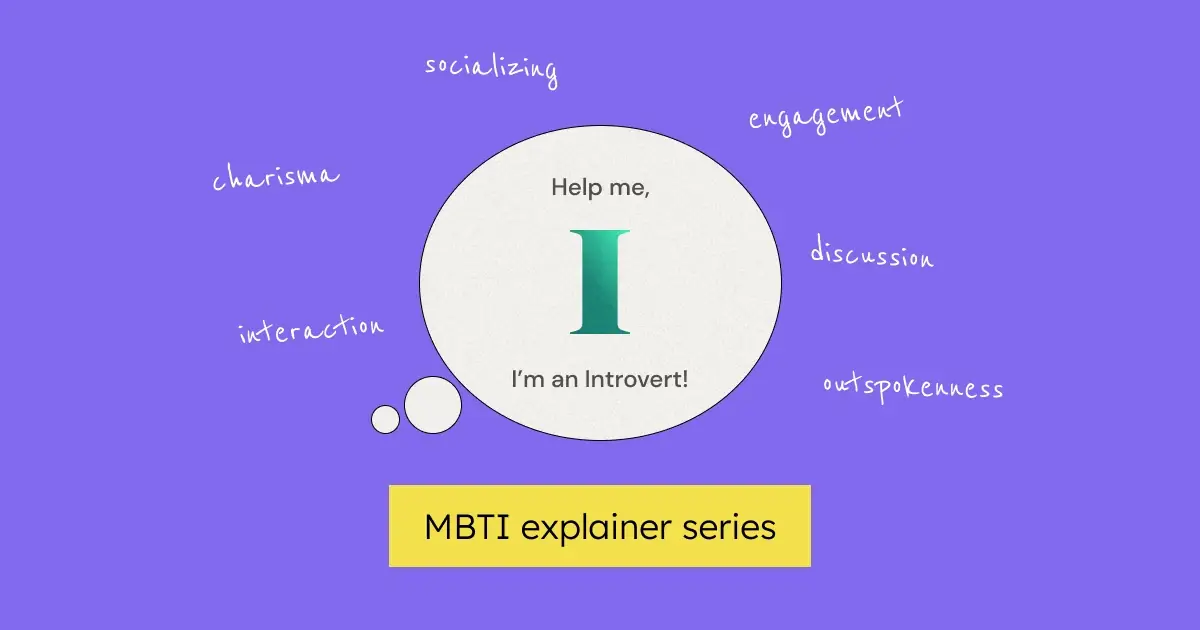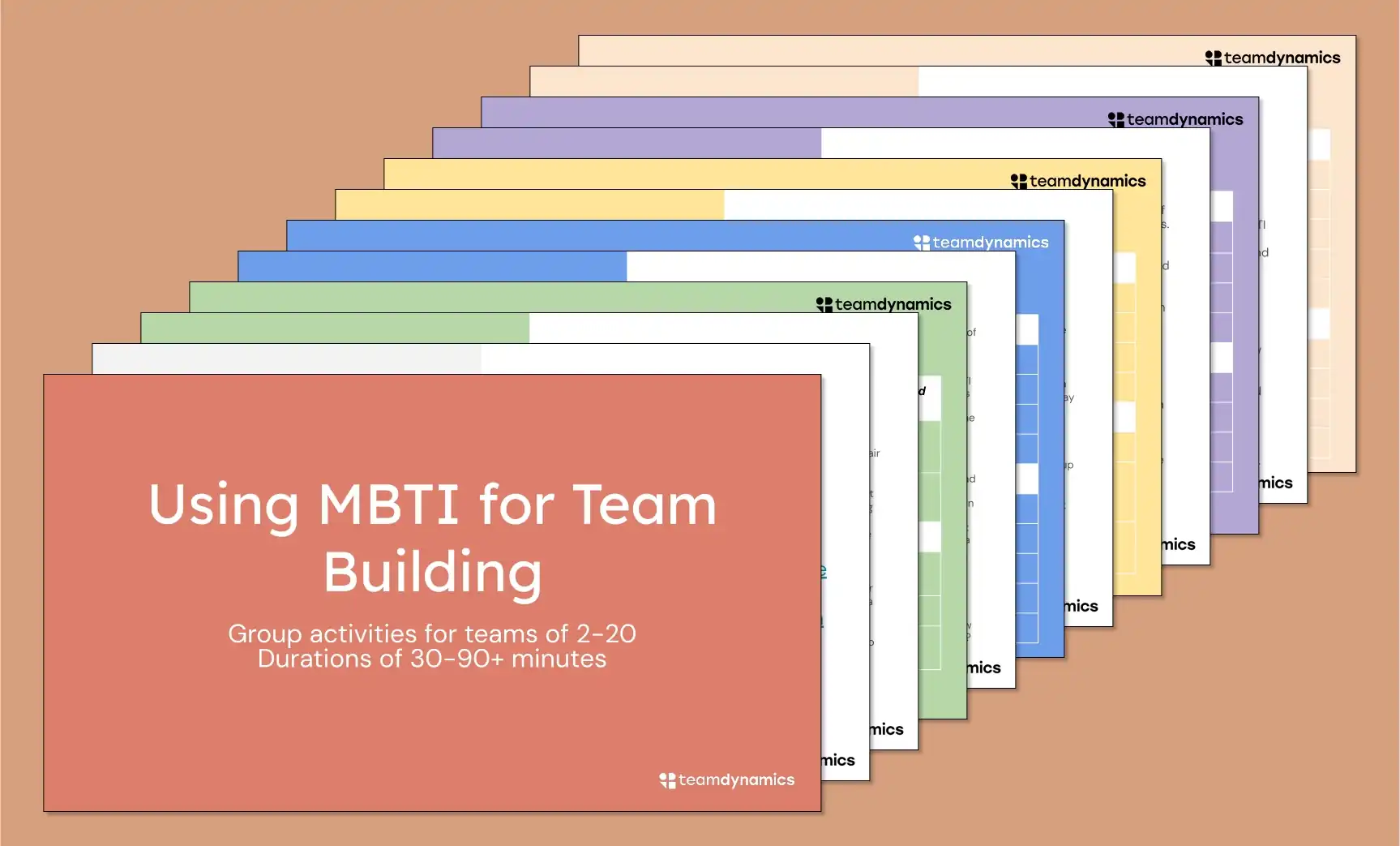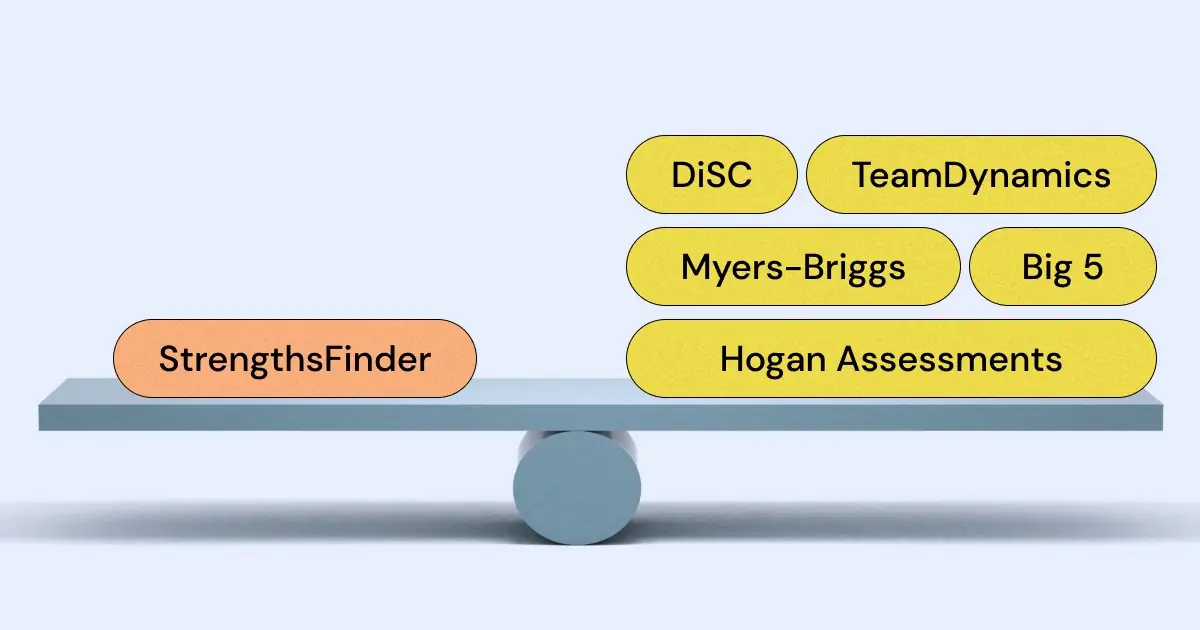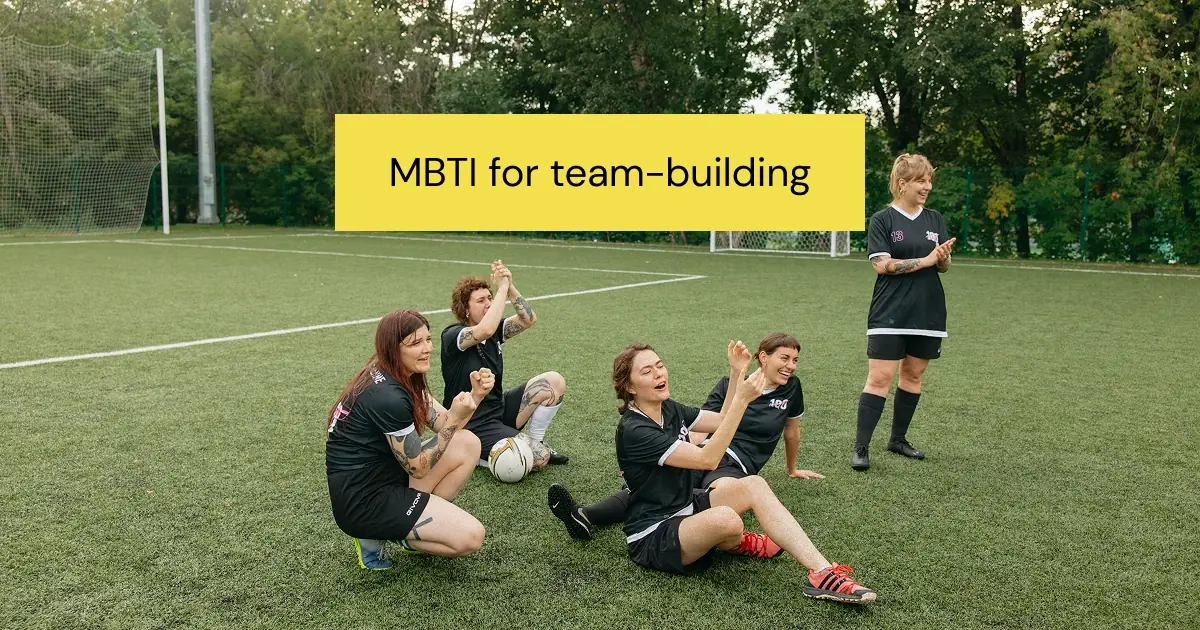Have you ever taken the Myers-Briggs Type Indicator, or MBTI? If so, you might identify as an "Introvert." This isn't about being shy or antisocial. Introversion, in MBTI terms, means you recharge by spending time alone, and you might find social interactions draining after a while.
On the flip side, you've probably encountered "Extroverts" in your workplace - those colleagues who seem to thrive in group settings, always ready for the next meeting or team outing. They're energized by social interactions and love to express their ideas out loud.
In an ideal world, all personality types, including introverts and extroverts, would mesh perfectly in the workplace. However, we often find that work environments are heavily tailored to extroverts, valuing constant collaboration and open communication.
If you're an introvert, you might find it challenging to assert your ideas or keep up with the pace of extroverted communication. Maybe you often feel like you're running on empty trying to match the energy level of your extroverted colleagues. But don't worry - this post is here to help. We'll navigate the path of being an introvert in a predominantly extroverted workplace, focusing on strategies like effective communication, finding quiet time, and leveraging your introverted strengths for success. Let's dive in!
Understanding the Spectrum: Introversion and Extroversion
Let's take a moment to delve into the unique characteristics of both introverts and extroverts as defined by the Myers-Briggs Type Indicator (MBTI).
First off, introverts. If you're an introvert, you probably find comfort and energy in solitude. You prefer to think before you speak and may often get lost in your thoughts. That doesn't mean you dislike people - rather, you value deeper, more meaningful conversations over small talk. Some might even describe you as a 'quiet observer.'
On the other hand, extroverts gain energy from being around others. They're often the first to speak up in a discussion, enjoy being in the spotlight, and love engaging in social activities. They're talkative, expressive, and rarely miss a chance to share their ideas with the team.
However, it's crucial to dispel some common misconceptions about introverts and extroverts. Being an introvert doesn't mean you're antisocial or shy, just like being an extrovert doesn't make you superficial or insensitive. These are personality types, not rigid boxes we're stuffed into.
Take Bill Gates and Steve Jobs, for instance. Gates, the co-founder of Microsoft, is often labeled as an introvert. He's known for his thoughtful approach, his ability to concentrate for long periods, and his preference for deep, focused work - classic introvert strengths. On the other side, Steve Jobs, the co-founder of Apple, was a quintessential extrovert. His love for the limelight, his energetic presentations, and his ability to inspire people through his words echo extrovert traits.
Yet, both have achieved monumental success in their fields, proving that whether you're an introvert or an extrovert, you have unique strengths that can contribute positively to your workplace and team dynamics. Remember, it's not about who's better - it's about understanding our differences and learning how to work together effectively.
{{inline-cta}}
The Workplace Challenge: The Introvert among Extroverts
Navigating the workplace can sometimes feel like walking through a jungle for introverts. In a world that often values quick thinking and loud voices, being an introvert can pose its own unique set of challenges. Let's break these down:
Group Meetings and Brainstorming Sessions
These situations are common in many workplaces and can be especially challenging for introverts. The pressure to think on your feet and contribute ideas on the spot can be overwhelming, particularly when you're more comfortable taking time to think things through.
Open Office Layouts
Many offices are designed to encourage interaction, with few spaces for quiet and solitude. For introverts who value their quiet time, this can be draining.
Networking and Social Events
Professional networking and social events are seen as vital for career advancement. However, they often favor extroverted behaviors, making it difficult for introverts who may find these events exhausting or uncomfortable.
Communication
Extroverts typically prefer to discuss ideas out loud, while introverts tend to mull things over internally. This difference in communication styles can lead to misunderstandings.
Let's consider the story of Megan, an introverted software engineer in a bustling tech startup. When Megan first joined the team, she found herself overwhelmed by the company's culture - impromptu team meetings, a loud open office space, and regular networking events. She often felt unheard in meetings and struggled to make connections at social gatherings.
But over time, Megan learned to navigate this extroverted world. She began to schedule "quiet hours" into her day, allowing her to focus on her work without interruption. She learned to communicate her thoughts and ideas effectively, even in high-pressure meeting situations. Most importantly, she discovered that she could network in her own way, building deep, meaningful connections with a few people at a time rather than trying to work the entire room.
Megan's story is a testament to the resilience and adaptability of introverts in extrovert-dominated workplaces. It may not always be easy, but it's definitely possible to succeed. In the following sections, we'll look at strategies to help you thrive as an introvert in an extrovert's world.
Strategies for MBTI Introverts
As an introvert, you possess unique strengths that can help you thrive, even in an extrovert's world. Let's explore four strategies you can adopt to navigate your extrovert-dominated workplace effectively:
1. Find your Quiet Time
You, as an introvert, recharge by spending time alone. It's important to carve out these quiet moments even in the hustle and bustle of the workplace. For example, consider Alex, a software developer who works in a busy, open-plan office. Alex found his refuge in "quiet hours." He would block off a couple of hours each day on his calendar, during which he'd put on his headphones and focus on his coding tasks. This quiet time allowed Alex to recharge and maintain his productivity.
2. Assert your Ideas
Asserting your ideas in a group setting may not come naturally as an introvert, but there are techniques to make this easier. Think about Emily, an introverted marketer. She found brainstorming sessions intimidating and her ideas often went unheard. Emily decided to prepare in advance for these sessions, jotting down her ideas and organizing them into a clear pitch. When the time came, Emily confidently shared her well-thought-out campaign idea, which was received positively by her team.
3. Effective Communication
Communicating with extroverts doesn't have to be exhausting. It's about understanding their communication style and adapting yours to meet in the middle. Consider Mrs. Johnson, a high school teacher. Although introverted herself, she found a way to effectively engage with her extroverted students by incorporating interactive learning activities into her lessons. She found that creating a balance between group activities and quiet study times catered to both her needs and her students'.
4. Leverage your Strengths
Introverts possess strengths such as deep thinking, being detail-oriented, and the ability to work independently. Leverage these strengths in your workplace. Take Mike, an introverted project manager, for instance. Mike excelled in preparing detailed project plans. During team meetings, he presented these comprehensive plans, showcasing his attention to detail. This approach made him a valuable team player and earned him recognition for his thoroughness.
Remember, being an introvert in an extroverted workplace is not a disadvantage. By adopting these strategies, you can make your introversion work for you, not against you. Your unique strengths as an introvert can contribute significantly to your team's success.
The Benefits of Introvert-Extrovert Team Dynamics
The beauty of MBTI lies in the diversity of personality types it celebrates, each contributing uniquely to team dynamics in the workplace. An effective team, like a well-balanced ecosystem, thrives on this diversity, including the mix of introverts and extroverts.
You might be wondering: how can introvert-extrovert combinations foster innovation and productivity? It's simple - different perspectives fuel creativity, and varied strengths enhance the team's overall performance.
Imagine a soccer team. In every game, you have both offensive and defensive players. The forwards - much like extroverts - are out in the front, taking swift actions, and making quick decisions. They are aggressive and energetic, capturing most of the spotlight. Meanwhile, the defenders - much like introverts - might not be as visible but play an equally vital role. They take a more calculated approach, analyzing the game and making strategic decisions to protect their goal.
{{inline-cta}}
While the forwards' spontaneity can lead to brilliant goals, the defenders' caution and strategic thinking prevent the opponents from scoring. It's the balance between these two types of players that make a team successful. They complement each other, and their combined strengths give the team a strategic advantage.
Similarly, in a workplace setting, extroverts might be the ones leading meetings and driving forward initiatives. At the same time, introverts are the ones who provide depth and detail, carefully considering decisions and crafting thoughtful plans. When introverts and extroverts work together, they create a dynamic that balances immediate action with thoughtful strategy, leading to innovative solutions and increased productivity.
Embracing this diversity of personality types and understanding the strengths each brings to the table is key to a productive and effective team. When introverts and extroverts learn to appreciate each other's strengths and work together, the possibilities for success are endless.
Conclusion
In our journey through the world of the Myers-Briggs Type Indicator (MBTI), we've explored the unique characteristics of introverts and extroverts, navigated the challenges an introvert might face in an extroverted workplace, and shared practical strategies for introverts to thrive among extroverts. We also highlighted the immense value of diverse personality types, demonstrating how introvert-extrovert team dynamics can spur innovation and productivity.
But remember, these strategies and insights are not meant to change who you are. They're tools to help you navigate and make the most of your environment, while staying true to yourself.
As an introvert, you possess unique strengths. Your capacity for deep thought, your detail-oriented approach, and your ability to work independently are all assets that contribute significantly to your team. In the rush and noise of an extroverted world, your quiet resilience is a strength, not a weakness.
So, embrace your introversion. Find your quiet time, assert your ideas, communicate effectively, and leverage your strengths. Be the thoughtful strategist in a world of quick reactors. The workplace needs your unique perspective, and when you value your own introverted qualities, others will too.
Here's to all the introverts out there - your quiet strength is a power in the extroverted world of work. Let's continue to celebrate the diversity of personality types and work together to create balanced, dynamic, and successful teams.
Check out our other MBTI resources!
We hope you've found this guide useful. Remember, everyone's experience is unique, and it's about finding strategies that work best for you. If you enjoyed reading this, don't keep it to yourself! Share it with your friends, colleagues, or anyone you think could benefit from it. Let's create a more understanding and inclusive workplace together!
MBTI is one of the most popular personality tests, and people are always asking us how they can better use it with their teams. Here are a few other useful articles you can try:
And if you're looking to crack the code on working with a specific MBTI type, check out our guides written just for you:
Interested in diving deeper into personality types, teamwork, and team performance? We've got a treasure trove of insightful articles just waiting for you to explore. Check out our other blogs on topics like team dynamics, effective communication strategies, and more in-depth dives into different personality tests. And check back often - we're always publishing more great content!


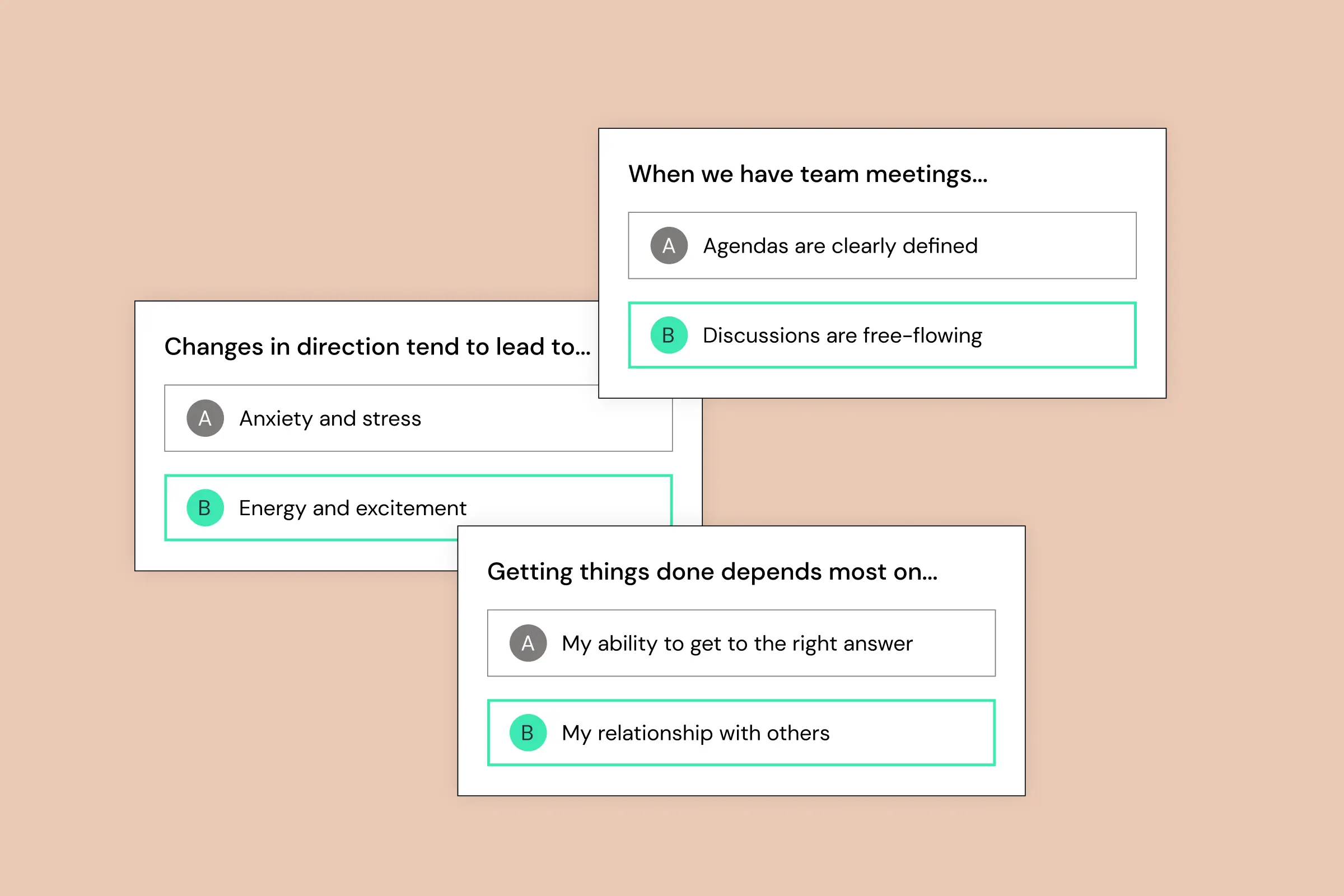

.png)
